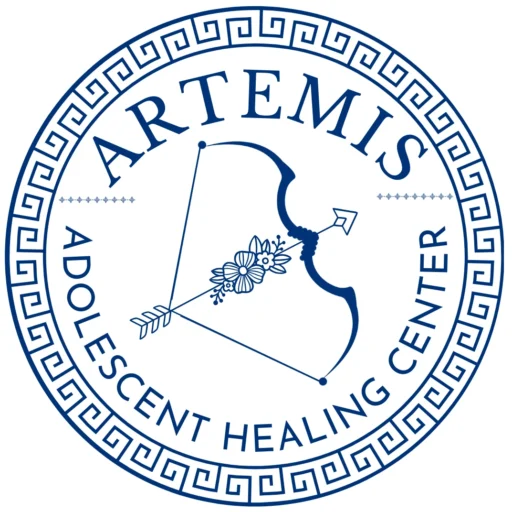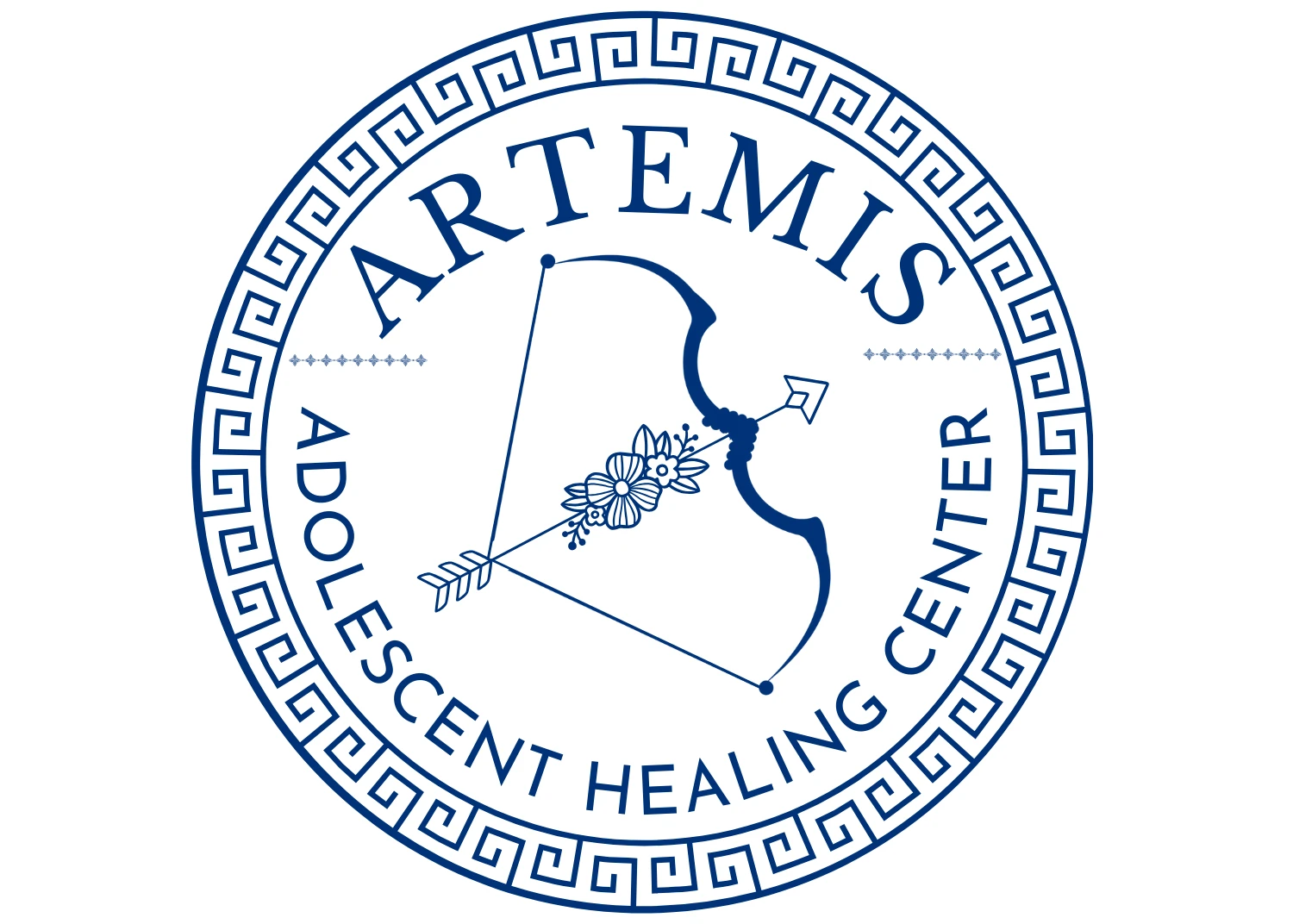Mental Health Treatment and Teen Suicide Prevention at Artemis
If you’re a parent worried about your teen’s mental health, it is important to know: you are not alone and your concern is valid.
Maybe you’ve noticed changes in their mood, habits, or behavior, and you’re unsure whether it’s typical adolescence or something more serious. These thoughts can be overwhelming, but reaching out for information about teenage suicide prevention is a powerful part of protecting your child.
At Artemis Adolescent Healing Center in Tucson, we understand the weight of these concerns. We’re committed to supporting teens, families, and community members with compassion, education, and healing.
Whether you’re a parent, teacher, or friend, your awareness and involvement can help prevent youth suicide and save lives, so please keep reading to learn more and, remember, we are for support by confidential call at any time.
Get Confidential Trauma and Mental Health Assessment
Understanding Teen Suicide and Teen Suicide Prevention Efforts
Teen suicide is a preventable tragedy that affects thousands of families across the United States each year. In fact, according to the Centers for Disease Control and Prevention (CDC), suicide is the second leading cause of death for people ages 10 to 24.
Teen suicide is a complex issue influenced by emotional, social, environmental, and biological risk factors. No single cause can explain why a young person might attempt or die by suicide, but certain patterns help us understand and intervene.
What Are Common Risk Factors for Teens Experiencing Suicidal Ideation?
There’s no single cause behind teen suicide, but certain experiences and challenges can increase the risk. Some of the most common include:
- Ongoing struggles with depression, anxiety, or other mental health conditions
- Substance use, especially alcohol or drugs
- A past suicide attempt
- A history of trauma, abuse, or neglect
- Feeling isolated or lacking a strong support system
- Conflict at home or rejection by peers
- Knowing someone who has attempted or died by suicide
- Easy access to dangerous items like firearms or prescription medications
Recognizing these warning signs can make a real difference. The earlier we spot and address them, the better chance we have of helping teens.
Preventing Suicide in Teens: Know the Red Flags and Warning Signs

Spotting the signs that a teen might be struggling can be lifesaving. While not every young person will show obvious signals, many will display subtle shifts in behavior or mood that hint at something deeper.
If something feels off, it’s important to pay attention and trust your gut, especially for parents, teachers, caregivers, and anyone close to the teen who is experiencing issues.
Emotional and Behavioral Red Flags:
Here are some common signs that a teen might be dealing with emotional pain or suicidal thoughts:
- Saying things that show hopelessness, worthlessness, or feeling stuck, especially statements like “I can’t do this anymore” or “things will never change.”
- Talking about being a burden or feeling like others would be better off without them.
- Avoiding time with close friends, skipping family dinners, or losing interest in things they once loved, like music lessons, soccer practice, or gaming with friends.
- Creating or sharing content, art, writing, or posts about death, disappearing, or wanting to die.
- Having sudden mood shifts, like going from deep sadness to calm or even upbeat, which can sometimes signal a decision to follow through on suicidal thoughts.
- Taking big risks or engaging in reckless behaviors, such as unsafe sex, substance use, or dangerous stunts.
- Self-harming behaviors like cutting, burning, or scratching, often a way to cope with overwhelming emotions.
- Increasing or starting to use drugs or alcohol to escape or numb emotional pain.
- Giving away meaningful items, saying goodbye, or making vague but concerning comments like “you won’t need to worry about me anymore.”
- Changes in sleep habits, either sleeping way too much or barely at all.
- A drop in grades, skipping school, or losing interest in plans for the future.
These signs might not show up all at once, but even a few happening together, or anything that seems out of character, deserves attention. If a young person clearly expresses a desire to end their life, it’s a medical emergency. Contact 911 or the 988 Suicide & Crisis Lifeline immediately to ensure they receive the support and stabilization they need.
Digital and Verbal Clues:
In today’s world, teens often share their feelings online or through private messages. That’s why it’s important for caregivers and parents to stay tuned into their teens’ digital lives. Keep an eye out for:
- Posts or DMs that mention wanting to disappear, being in pain, or not feeling seen.
- Jokes or memes about death or suicide, which can sometimes mask real distress.
- Messages that sound like a goodbye, apologies for past behavior, or emotional confessions.
- Search history that includes suicide methods, ways to die, or crisis help resources.
Even if they seem small or cryptic, they might be a teen’s way of asking for help. These digital clues are often some of the most revealing.
Teens commonly use platforms like Snapchat, Reddit, Instagram, Discord, and TikTok, as well as private messaging apps like iMessage or WhatsApp. Some may also engage in semi-anonymous or anonymous forums where it’s easier to express distress or vent. Building trust and maintaining open communication about online activity can create opportunities to notice concerning patterns early.
If something online raises alarm, don’t brush it off. Bring it up gently and offer support. Then, if needed, involve emergency services or a mental health professional from Artemis Adolescent Healing Center.
What to Do If You’re Worried About a Teen

If you suspect your teen in your life is struggling, trust your instincts and take it seriously. Reaching out might feel intimidating, but it can be life-changing. The most important thing is to approach the situation with calm, empathy, and a willingness to listen.
Start by opening up a conversation in a safe, nonjudgmental way. Speak directly, even if it feels uncomfortable, asking questions like, “Are you thinking about suicide?” or “Have you had thoughts of hurting yourself?” won’t put the idea in their head, but it can give them permission to talk honestly.
Let them know they’re not alone and that help is out there. Try to avoid downplaying their emotions or rushing to fix things. Just being present and listening can go a long way.
If they do open up about suicidal thoughts, past attempts, or plans to hurt themselves, it’s time to take immediate action. Don’t try to handle it by yourself.
Again, in an emergency, call 911 or take them to the nearest emergency room. You can also reach out to their pediatrician for mental health referrals or connect with school counselors and local therapists.
Find Support Following a Crisis Intervention at Artemis
If your teen needs more structured support following a crisis intervention, or as a preventative measure, our treatment programs at Artemis provide comprehensive care for adolescents facing serious emotional challenges.
Artemis offers a range of programs tailored to meet the unique needs of adolescents. Our services include both inpatient and outpatient support, designed to address mental health challenges and substance use disorders.
We provided individualized treatments plans that incorporate evidence-based therapies such as Cognitive Behavioral Therapy (CBT), Dialectical Behavior Therapy (DBT), and family counseling.
We believe that early intervention, compassionate care, and structured support can help young people build resilience and move forward with hope.
Get Accredited Treatment Programs at Artemis
How Parents and Caregivers Can Help Prevent Teen Suicide
As a parent or caregiver, your connection with your teen is one of the most powerful tools you have to protect them. Even when things feel tense or uncertain, showing up consistently with love, support, and curiosity can make a big difference.
Start by creating space for open communication. Make time each day, even if it’s just a few minutes, to be present with your teen. Ask how they’re doing and let them know it’s okay to talk about stress, emotions, or mental health struggles.
When they do open up, try not to jump to judgment or punishment. Just listening with compassion can help them feel safe and understood.
Supporting Your Teen Through Everyday Prevention
It’s also important to stay proactive about their mental health. If you notice changes in their mood, behavior, or energy, don’t hesitate to schedule a screening or talk to a mental health professional. If your teen is already in therapy or taking medication, stay involved in their care, check in, attend appointments when appropriate, and be their advocate when working with providers or the school system.
Creating a safe environment at home can go a long way, too. This includes locking away firearms, prescription medications, or anything else that could be dangerous in a moment of crisis.
Keep an eye on screen time and social media use, and make sure your teen has a healthy routine that includes good sleep, movement, and downtime.
Lastly, don’t be afraid to speak up about mental health in your community. Learn all you can about teen suicide, depression, and anxiety. Talk openly about these issues to reduce stigma and help other parents understand the warning signs. When we create a culture of awareness and empathy, we give more teens the chance to be heard and supported.
How Evidence-Based Treatment Supports Struggling Teens

You don’t have to navigate your child’s mental health crisis alone. While emotional struggles and suicidal thoughts can feel overwhelming, evidence-based care in the right environment can make a meaningful difference. Something this is the difference between life and death.
At Artemis Adolescent Healing Center, we provide structured, compassionate treatment that meets teens where they are. Our approach blends proven therapies like CBD and DBT with trauma-informed care, giving young people practical tools to regulate emotions, build resilience, and manage distress.
Our programs are designed specifically for adolescents and tailored to each individual. Whether your child is dealing with depression, trauma, anxiety, suicidal ideation, and co-occurring substance use, our clinicians create personalized care plans that focus on long-term healing and stabilization.
A Personalized Mental Health Treatment Plan
Therapy isn’t one-size-fits-all. Some teens need the structure and safety of a residential setting, while others thrive through outpatient services like partial hospitalization or intensive outpatient programs. No matter the level of care, Artemis fosters a therapeutic environment where teens feel seen, heard, and supported.
Professional care is essential, but so is collaboration. We work closely with schools, parents, and outside providers to ensure a coordinated support system is in place. When everyone is working together toward healing, safety, and growth, teens are more likely to engage in treatment and find their way forward.
Early intervention saves lives. If your teen is showing emotional distress, now is the time to seek help. The right care at the right time can help them replace a sense of hope and move toward a healthier future.
How Artemis Adolescent Healing Center Supports At-Risk Teens

At Artemis, we specialize in mental health and behavioral treatment for adolescents ages 12–17. Our trauma-informed approach helps teens address not just the symptoms of their struggles but the root causes.
We offer a full continuum of care designed to meet teens where they are, including:
- Residential treatment with 24/7 supervision in a safe, structured environment.
- Partial Hospitalization Program (PHP) for intensive daytime care while living at home.
- Intensive Outpatient Program (IOP) for ongoing support with flexible scheduling.
- Individual and group therapy tailored to the needs of adolescents.
- Evidence-based treatment for anxiety, depression, substance use, and trauma.
- Family therapy to strengthen relationships and improve communication.
- Psychiatric evaluation and medication management when appropriate.
We work closely with families, health care providers, and school systems to create support that fosters healing. Whether a teen is struggling with emotional overwhelm, substance use, or both, our team provides personalized, compassionate care rooted in evidence-based practices.
At Artemis, our mission is to reduce youth suicide through emotional safety, early intervention, and long-term resilience. We’re here to help teens, and the people who care about them, move forward with hope.
Worried About a Young Person? Contact Artemis Today
No young person should ever feel that they have to face life’s challenges alone. With the right support, early intervention, and compassionate care, suicide is preventable. As a parent, teacher, coach, or friend, you have the power to listen, connect, and act.
If you’re worried about a teen in your life, reach out to Artemis Adolescent Healing Center to get the assistance you need. Together, we can reduce suicide deaths, foster healing, and build a future where all children and teens feel seen, safe, and supported.
All calls are confidential, so please reach out now for proven support options at Artemis.
Up To 100% of Rehab Costs Covered By Insurance
Local and National Resources for Crisis Intervention
If you or someone you know is in crisis, don’t wait. Use these trusted mental health resources to get immediate help:
Emergency and Crisis Support:
- 988 Suicide & Crisis Lifeline: Call or text 988 for 24/7, free, confidential support.
- Teen Lifeline Arizona: 602-248-8336 (teens answer calls from 3 p.m. to 9 p.m. daily).
- Crisis Text Line: Text HOME to 741741 for help from trained crisis counselors.
References
- https://www.apa.org/topics/suicide/prevention-teens
- https://suicideprevention.nv.gov/Youth/WhatYouCanDo
- https://afsp.org/teens-and-suicide-what-parents-should-know
- https://pmc.ncbi.nlm.nih.gov/articles/PMC7510279
- https://www.healthychildren.org/English/healthy-living/emotional-wellness/Pages/suicide-prevention-things-parents-can-do.aspx






